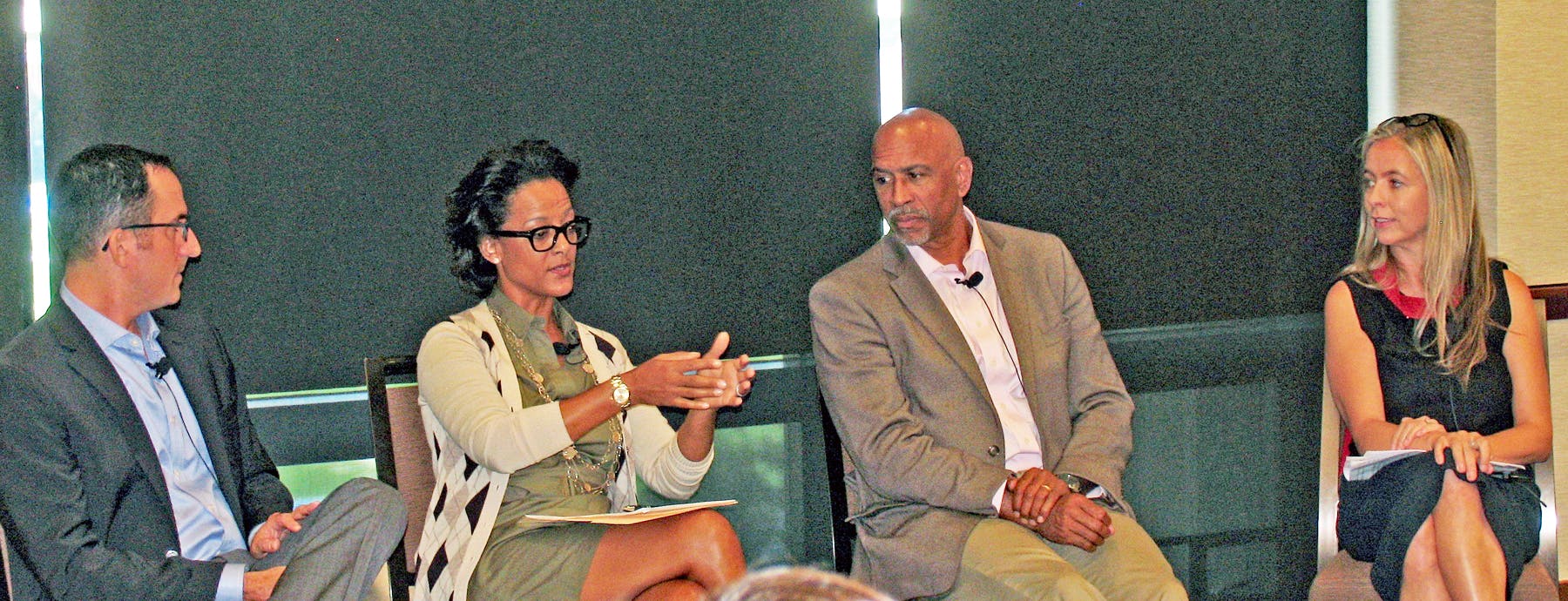“Do we ask for evidence about affluent kids?”
With those words, UCLA Distinguished Professor Pedro Noguera set the stage for an important conversation about the need for athletic and learning opportunities for young people in after-school and recreational settings, and the use of data in securing those opportunities.
Noguera’s point was not to question the importance or validity of research and data, but to underscore the difference in the lives of young people from low-income backgrounds and their more affluent peers and how we view them.
“There is a huge opportunity gap between poor and affluent kids,” said Noguera. “And we need to encourage those who are funders to think about what evidence matters.”
Professor Noguera made his comments at “What’s the Evidence: Do After School Programs make a Difference for Kids?”, a forum hosted by UCLA CRESST on Sept. 28 at UCLA’s Luskin Conference Center. The forum was moderated by Julia Phelan, senior research scientist at UCLA CRESST. Renata Simril, president and CEO of LA84 and Eric Gurna, president and CEO of LA’s Best, also participated.
LA’s Best has previously partnered with UCLA CRESST to secure independent evaluation of the effectiveness of its after-school enrichment programs. The results have consistently shown positive outcomes including helping to reduce the number of dropouts and participation in juvenile crime, while boosting academic gains.
Previous CRESST Research has shown LA ‘s Best Participants:
- Are 20% less likely than non-participants to drop out of school
- Are 30% less likely than non-participants to commit a juvenile crime
- Had bigger gains in math, language arts, science and history in middle school the longer they attended LA’s Best
- Have improved attendance in middle school
- Demonstrate higher GPA’s in middle School
- Score higher on California Standardized Tests in math and algebra than non-participants
“The question is can we create a movement that offers kids better opportunities?” said Gurna. “To do that, we need to be able to make the case to funders and policymakers. But right now, we don’t have the capacity to develop that evidence.”
In the course of the conversation, the speakers lamented the loss of music, art, and physical education during the course of the school day and the increased importance of access to those opportunities in after-school settings.
“Talent is universal, but opportunity is not,” said Simril. “There is a huge play equity gap. P.E. is a social justice issue.”
“We used to make the investment in music and physical education, but no longer do,” added Noguera. “And an even bigger problem is the disinvestment in certain children and communities.”
Simril’s and Noguera’s comments underscored the inequities in access to sports and athletics for young people, in spite of evidence of their impact on health and well-being.
“The inequities are very real, and the questions about investment are very real, said Simril. “But I reject the notion that there is not evidence. The question is, how do we communicate and market that evidence.”
The speakers also noted the importance of the use of evidence in evaluation quality and in using that information to improve and scale programs.
“Data can help to show us what quality looks like, and also to help us reach out to the kids that need it most,” said Noguera.
“This is an occasion where CRESST can serve as a community partner to engage people in an important conversation and further understanding, said Li Cai, director, UCLA CRESST. LA’s Best is right, there is a need for an independent source of perspective. We are that source and can offer independent, objective evidence.”
“This has been a great conversation and here in this room there is lots of agreement about these issues,” added Phelan. “But the reality is that not everyone knows about or understands these issues, let alone agrees with them. That’s why you need evidence.”
Above: Julia Phelan, senior research scientist at UCLA CRESST (at far right) and UCLA Distinguished Professor of Education Pedro Noguera (second from right) led a conversation at UCLA on the importance of athletic and learning opportunities for young people in after-school settings and the use of data in securing those opportunities.
Photo by John McDonald
